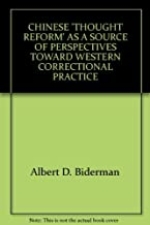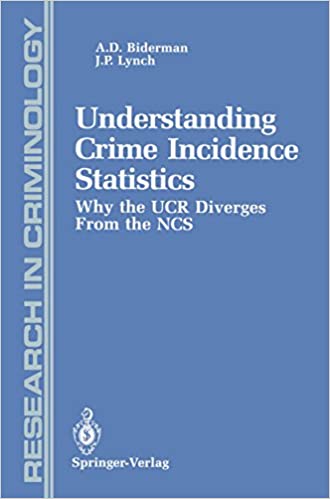Background
Albert D. Biderman was born on July 10, 1923, in Paterson, New Jersey, United States. He was the son of Isaac and Celia (Silberstein) Biderman.

New York University, New York, NY 10003, United States
Biderman completed his undergraduate work in economics at New York University.
5801 S Ellis Ave, Chicago, IL 60637, United States
Biderman received a Master of Arts degree in 1952 and a Doctor of Philosophy degree in 1964 in sociology at the University of Chicago.

(Studies of Chinese Communist brainwashing practices proce...)
Studies of Chinese Communist brainwashing practices proceeded with little reference to Western literature on penology and correction. When serious comparative consideration of Western and Chinese reform efforts did take place, however, the normative outlook from which Westerners had viewed Chinese thought reform gave uniquely valuable perspectives on Western practices. Several illustrations are given of how the examination of deplored reform practices can provide valuable, chastening insights regarding the meaning and effectiveness of reform efforts that one values positively.
https://www.amazon.com/CHINESE-THOUGHT-PERSPECTIVES-CORRECTIONAL-PRACTICE/dp/B00A4O71SQ/ref=sr_1_8?dchild=1&keywords=Albert+D.+Biderman&qid=1597658685&sr=8-8
1965

(The prominence achieved by the novel measure of "househol...)
The prominence achieved by the novel measure of "households touched by crime" when it was introduced into the National Crime Survey (NCS) in 1981 was responsible for renewed attention to comparisons between the crime rates reported by the NCS and the Uniform Crime Reports (UCR). The new NCS measure suggested that crime was declining; this at a time of widespread awareness that the UCR Index was at all-time highs.
https://www.amazon.com/Understanding-Crime-Incidence-Statistics-Criminology-ebook/dp/B00FB4UDMU/ref=sr_1_1?dchild=1&keywords=Albert+D.+Biderman&qid=1597658095&sr=8-1
1991
educator researcher social scientist author
Albert D. Biderman was born on July 10, 1923, in Paterson, New Jersey, United States. He was the son of Isaac and Celia (Silberstein) Biderman.
After serving in the United States Army in Europe during World War II and in a government post in Germany immediately after the war, Biderman completed his undergraduate work in economics at New York University. This was followed by a master's degree in 1952 and a Doctor of Philosophy degree in 1964 in sociology at the University of Chicago.
Biderman's first job was as a sociology instructor at Illinois Institute of Technology from 1948 to 1952. For the next five years, he worked as a research social psychologist for the United States Air Force. Most of his work in social science research, however, was accomplished during his nearly thirty years - from 1957 to 1986 - at the Bureau of Social Science Research in Washington, District of Columbia.
After retiring from the Bureau of Social-Science Research, Biderman was a research professor of justice at the American University's School of Public Affairs. He also was a corporate, institutional and government consultant in the United States and abroad. He was an adviser to Congress and federal agencies on issues including military personnel policy, criminal justice, and communist indoctrination and interrogation.
His books included "March to Calumny: The Story of American POWs in the Korean War," which rebutted the misconception that United States prisoners collaborated with their communist captors.
Biderman is best known as a social science researcher who was particularly noted for his contributions to the analysis of social indicators. He was also one of the first researchers to use victim self-reporting in order to determine more accurate crime statistics. He did this work from 1958 to 1985 with the Bureau of Social Science Research, an independent survey research organization that was begun in Washington at the American University. At the bureau, he directed a research consortium that made the national survey a model for sociologists in other countries.
In all, he produced more than 100 publications in criminology, psychology, sociology, political science, statistics, and graphical representation of social data. He wrote about crime in such books as An Inventory of Surveys of the Public on Crime, Justice, and Related Topics (1972) and Understanding Crime-Incidence Statistics: Why the UCR Diverge from the NCS (1991). He was also the author, co-author, or editor of several other books. His work on forceful interrogation led to changes in United States military policy and training.
His honors included a Distinguished Career Achievement Award from the American Sociological Association and the Stuart A. Rice Award of the D.C. Sociological Society.
(The prominence achieved by the novel measure of "househol...)
1991(Studies of Chinese Communist brainwashing practices proce...)
1965Biderman was a fellow of the American Statistical Association and the American Association for the Advancement of Science and a member of a number of professional organizations, including the American Political Science Association. He was chairman of the executive council of the American Association for Public Opinion Research.
On November 9, 1951, Biderman married Sumiko Fujii. They had three children, David Biderman, Joseph Biderman and Paula Biderman.
